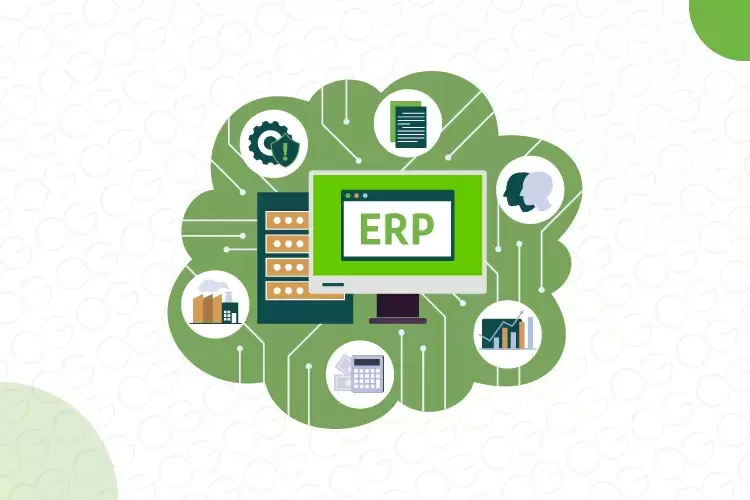Building a Profitable Retail Business with Email Marketing

Intro
In today’s digital age, email marketing has become a crucial tool for businesses to connect with their customers and drive sales. This is especially true for retail businesses, where competition is high and customer loyalty is key. With the use of a targeted retail industry email list, retailers can reach out to potential and current customers directly, providing them with personalized offers and promotions that can help build brand awareness and increase revenue. In this blog post, we will explore the benefits of using email marketing for retail businesses and how it can be used to build a profitable and successful business.
Understanding the Power of Email Marketing in Retail
In today’s fast-paced and competitive retail industry, it is essential for businesses to stay connected with their customers in order to drive sales and build brand loyalty. One powerful tool that retailers can utilize is email marketing. By harnessing the power of a targeted retail industry mailing list, businesses can reach out directly to potential and current customers, delivering personalized offers and promotions that resonate with their interests and needs.
Email marketing allows retailers to establish a direct line of communication with their customers, bypassing the noise and distractions of social media and other marketing channels. With email, businesses have the ability to tailor their messaging and offers to specific customer segments, increasing the likelihood of engagement and conversions.
One of the key advantages of email marketing in the retail industry is its cost-effectiveness. Compared to traditional advertising methods such as print or television, email marketing allows businesses to reach a large audience at a fraction of the cost. This is particularly beneficial for small and medium-sized retailers who may have limited marketing budgets.
Another advantage of email marketing is its ability to track and measure the success of campaigns. By using email analytics tools, retailers can gain valuable insights into customer behavior, such as open rates, click-through rates, and conversion rates. This data can then be used to refine and optimize future email campaigns, improving overall performance and profitability.
In summary, email marketing is a powerful tool that retailers can leverage to build a profitable and successful business. By utilizing a targeted retail industry mailing list, businesses can connect with their customers on a personal level, delivering tailored offers and promotions that drive sales and foster loyalty. With its cost-effectiveness and ability to track performance, email marketing is an essential strategy for retailers looking to thrive in today’s digital age.
Strategies for Building an Effective Email Marketing Campaign
To build an effective email marketing campaign for your retail business, it’s important to have a clear strategy in place. Here are some strategies to consider:
1. Segment your email list: Instead of sending a generic email to your entire list, divide your subscribers into different segments based on their preferences, behaviors, or purchase history. This allows you to tailor your messaging and offers to specific groups, increasing the relevance and impact of your emails.
2. Personalize your emails: Use the data you have about your customers to personalize your emails. Address them by name and include product recommendations or offers based on their previous purchases or browsing history. Personalization creates a sense of individual attention and makes your emails more likely to be opened and acted upon.
3. Craft compelling subject lines: The subject line is the first thing your subscribers see, so it needs to be attention-grabbing. Use words that create urgency or curiosity, and keep it short and concise. Experiment with different subject lines to see what resonates best with your audience.
4. Create mobile-friendly designs: With the majority of emails now being opened on mobile devices, it’s crucial to ensure that your emails are optimized for mobile. Use responsive design to ensure they look great on any screen size and make sure your call-to-action buttons are easy to tap.
5. Test and optimize: Don’t settle for the first version of your email campaign. Continuously test different elements such as subject lines, layouts, and calls-to-action to see what resonates best with your audience. Use A/B testing to compare different versions and make data-driven decisions on what works best.
By following these strategies and utilizing a targeted retail industry mailing list, you can build an effective email marketing campaign that drives engagement, conversions, and ultimately, profit for your retail business.
Maximizing Profits through Tailored Email Promotions
To maximize profits in your retail business, it is crucial to leverage tailored email promotions. By customizing your offers and promotions based on individual customer preferences and behaviors, you can significantly increase the effectiveness and profitability of your email marketing campaigns.
One effective strategy is to use customer data to create personalized recommendations and offers. By analyzing previous purchases, browsing history, and demographic information, you can create targeted promotions that are highly relevant to each individual customer. This personalization creates a sense of individual attention and increases the likelihood of engagement and conversions.
Another strategy is to utilize dynamic content within your emails. With dynamic content, you can display different offers or product recommendations based on specific customer segments or actions. For example, if a customer has previously purchased a certain product, you can showcase related accessories or complementary items in their emails. This not only increases the likelihood of additional purchases but also enhances the customer experience by providing them with relevant and useful information.
Furthermore, it is important to create a sense of urgency and exclusivity in your email promotions. Limited-time offers, exclusive discounts, or early access to new products can incentivize customers to make a purchase and take advantage of the promotion. By creating a sense of urgency, you can drive immediate sales and maximize your profits.
In summary, tailoring your email promotions to individual customer preferences and behaviors is a powerful strategy for maximizing profits in your retail business. By personalizing offers, utilizing dynamic content, and creating a sense of urgency, you can drive engagement, conversions, and ultimately, increase your profitability.
Leveraging Automation for Streamlined Email Marketing Operations
Leveraging automation is a game-changer when it comes to streamlining your email marketing operations for your retail business. By automating certain tasks and processes, you can save time, improve efficiency, and ultimately drive better results.
One key aspect of leveraging automation is setting up email workflows or drip campaigns. These automated sequences of emails are triggered by specific actions or behaviors from your subscribers, such as signing up for a newsletter or making a purchase. By creating a series of emails that are automatically sent out at specific intervals, you can nurture leads, onboard new customers, and re-engage dormant subscribers without having to manually send each individual email.
Automation also allows you to segment your email list and send targeted messages to specific groups of subscribers. With the help of email marketing software, you can easily categorize your subscribers based on their interests, behaviors, or demographics. This segmentation enables you to send highly personalized and relevant content to each segment, improving engagement and conversions.
Furthermore, automation can help with tracking and analyzing your email marketing efforts. By using tools that provide detailed analytics and reporting, you can gain valuable insights into the performance of your email campaigns. This data allows you to identify what is working and what isn’t, enabling you to make data-driven decisions and optimize your future email marketing strategies.
Overall, leveraging automation for streamlined email marketing operations is a must for any retail business looking to maximize efficiency and drive better results. By automating workflows, segmenting your list, and analyzing data, you can save time, increase personalization, and ultimately boost your revenue.
Evaluating the Success of Your Email Marketing Efforts
Evaluating the success of your email marketing efforts is crucial for determining the effectiveness of your campaigns and identifying areas for improvement. There are several key metrics and strategies that can help you evaluate your email marketing success.
Firstly, analyzing your open rates is a good starting point. This metric tells you how many of your recipients actually opened your email. A low open rate may indicate that your subject lines need improvement or that your emails are ending up in spam folders. By testing different subject lines and analyzing open rates, you can optimize your emails to increase open rates and improve engagement.
Click-through rates are another important metric to consider. This measures how many people clicked on the links within your email. A high click-through rate indicates that your content is engaging and relevant to your audience. If you have a low click-through rate, you may need to reevaluate your content and calls to action to make them more compelling and enticing.
Conversion rates are perhaps the most important metric to evaluate the success of your email marketing efforts. This measures the number of recipients who take the desired action, such as making a purchase or signing up for a newsletter. By tracking conversion rates, you can determine the effectiveness of your email campaigns in driving desired actions.
Another important aspect of evaluating your email marketing success is monitoring your unsubscribe rate. If your unsubscribe rate is high, it may indicate that your emails are not meeting the expectations or interests of your subscribers. Analyzing this metric can help you identify areas for improvement and adjust your email content and frequency accordingly.
Lastly, don’t forget to leverage the power of analytics tools provided by your email marketing platform. These tools can provide you with valuable insights into the performance of your email campaigns, allowing you to make data-driven decisions and optimize your strategies.
Key Takeaways and Next Steps for Your Retail Business
In this blog post, we have explored the benefits of using email marketing for retail businesses and how it can be used to build a profitable and successful business. Here are the key takeaways and next steps for your retail business:
1. Understand the power of email marketing: Email marketing allows you to establish a direct line of communication with your customers and tailor your messaging to specific customer segments. It is a cost-effective and trackable marketing strategy that can help you drive sales and foster customer loyalty.
2. Implement effective strategies: Segment your email list, personalize your emails, craft compelling subject lines, create mobile-friendly designs, and continuously test and optimize your campaigns. These strategies will help you maximize the impact of your email marketing efforts.
3. Leverage tailored email promotions: Customize your offers and promotions based on individual customer preferences and behaviors. By creating personalized recommendations, utilizing dynamic content, and creating a sense of urgency, you can significantly increase the effectiveness and profitability of your email marketing campaigns.
4. Automate your email marketing operations: Use automation to save time, improve efficiency, and drive better results. Set up email workflows, segment your email list, and analyze data to optimize your campaigns and increase revenue.
5. Evaluate the success of your email marketing efforts: Monitor key metrics such as open rates, click-through rates, conversion rates, and unsubscribe rates. Leverage analytics tools to gain insights and make data-driven decisions.
Incorporating these key takeaways and next steps into your email marketing strategy will help you build a profitable and successful retail business. By connecting with your customers on a personal level, delivering tailored offers and promotions, and optimizing your campaigns, you can drive engagement, conversions, and ultimately increase your profitability.
Conclusion
In today’s digital age, email marketing has become an essential tool for retail businesses looking to build a profitable and successful brand. By leveraging the power of a targeted retail industry email list, retailers can establish direct communication with their customers, delivering personalized offers and promotions that resonate with their interests and needs.
Through email marketing, retailers can bypass the noise and distractions of other marketing channels and tailor their messaging to specific customer segments. This not only increases the likelihood of engagement and conversions but also fosters customer loyalty.
Implementing effective email marketing strategies such as segmenting the email list, personalizing emails, crafting compelling subject lines, and creating mobile-friendly designs can significantly impact the success of a retail business. By continuously testing and optimizing campaigns, retailers can drive engagement and conversions, ultimately boosting revenue.
Moreover, leveraging automation for streamlined email marketing operations saves time, improves efficiency, and drives better results. Setting up email workflows, segmenting the email list, and analyzing data allow retailers to make data-driven decisions and optimize their campaigns for maximum profitability.
By evaluating key metrics such as open rates, click-through rates, conversion rates, and unsubscribe rates, retailers can gauge the success of their email marketing efforts and make necessary adjustments.
Incorporating these strategies, leveraging automation, and continuously evaluating and optimizing email campaigns will help retail businesses thrive in today’s competitive digital landscape. Building a profitable and successful retail business is within reach with the power of email marketing. So, get started today and unlock the potential of email marketing for your business.




